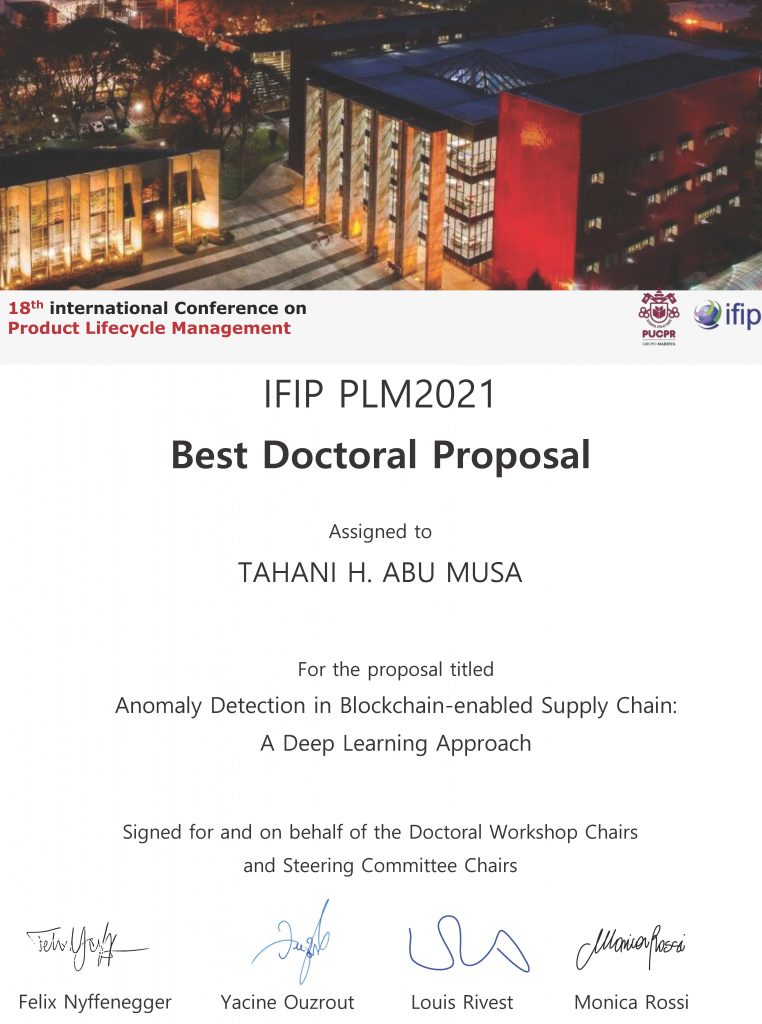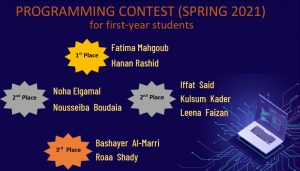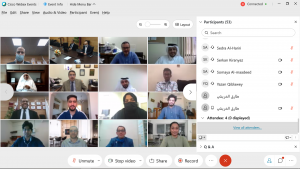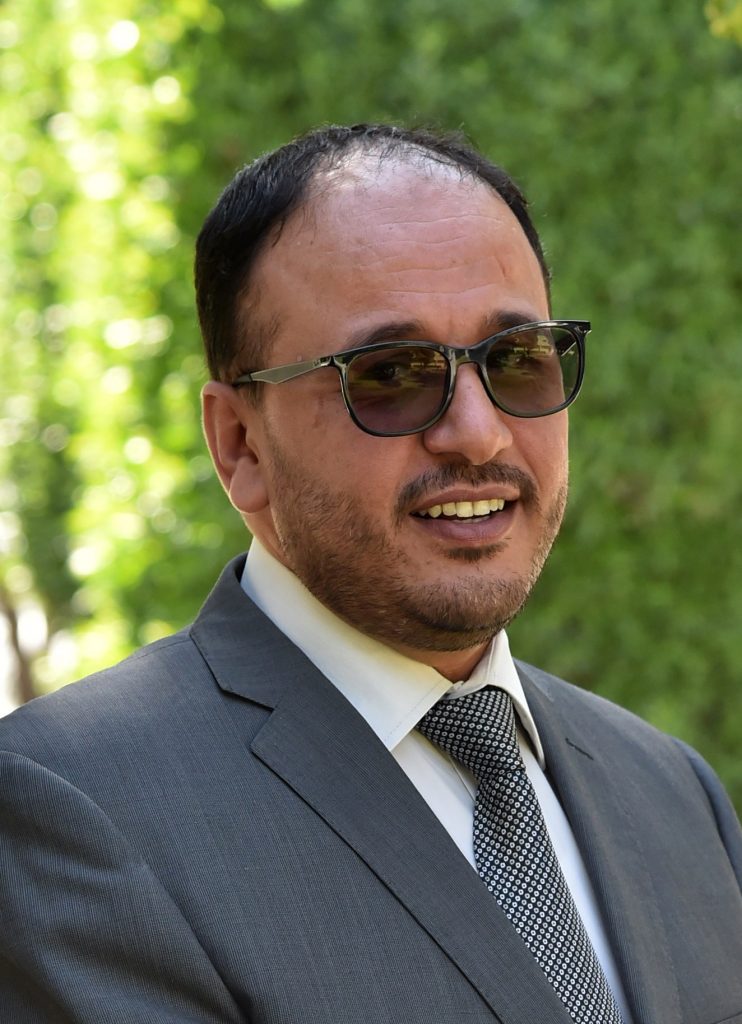Home » 2021 (Page 3)
Yearly Archives: 2021
Recent Posts
- Invitation to seminar| Reliable communication from 5G to 6G networks
- Invitation to seminar| Quantum Computing: Potential and Opportunities
- Invitation to seminar| Wearable electronics in the metaverse space -Challenges and Opportunities
- Invitiation to seminar| Satellite Spoofing Detection and Mitigation
- Invitation to seminar| Application of DRONS with Artificial Intelligence in military operations
Archives
- April 2024
- March 2024
- February 2024
- January 2024
- December 2023
- November 2023
- October 2023
- September 2023
- June 2023
- May 2023
- April 2023
- March 2023
- February 2023
- January 2023
- December 2022
- November 2022
- October 2022
- September 2022
- August 2022
- May 2022
- April 2022
- March 2022
- February 2022
- January 2022
- December 2021
- November 2021
- October 2021
- September 2021
- August 2021
- July 2021
- May 2021
- April 2021
- March 2021
- February 2021
- January 2021
- December 2020
- November 2020
- October 2020
- September 2020
- August 2020
Categories
We are Hiring!!!
September 2, 2021 / Leave a comment
We are looking for:
Assistant/Associate/Full professor
The Computer Science and Engineering Department is seeking high-caliber candidate for faculty position at the levels of assistant, associate, and full professor. The applicant should possess a Ph.D. degree in Computer Engineering, or a related field from a reputable university and should demonstrate a strong record in teaching, research, and services. While applicants in all areas of computing will be considered, the following areas are of particular interest to the department: Robotics, cybersecurity, AI for hardware design, embedded systems, biomedical engineering, quantum computing. The positions are available beginning January 2024.
More information is available in the attached file: Here
Lecturer
The applicant should hold a Ph.D. degree in Computer Science or an equivalent field from a reputable university. Moreover, the candidate must have a proven track record in teaching courses relevant to Mobile Application Development, Web Development, and Security (e.g., applied cryptography). We are particularly interested in individuals who are highly motivated and eager to collaborate with our dynamic team. The position is available starting from January 2024.
More information is available in the attached file: Here
How To Apply:
- New applicant: The application needs to set up an account here and complete the personal profile and apply to the selected position.
- Returning applicant: The applicant should log in to his/her account in here and update first his/her information and then apply.
- The IDs of the different positions are as follows:
Position ID
| Assistant/Associate/Full professor | IRC21041 |
Lecturer | IRC25450 |
Note: The department currently is not seeking any applicants for any other positions.
The position is available beginning January 2024.
New Patent Granted for CSE Faculty in Collaboration with KINDI Center
August 11, 2021 / Leave a comment

Dr. Khaled Khan and Dr. Noora Fetais from the Department of Computer Science and Engineering (CSE) have been awarded a patent titled “Methods and Systems for Monitoring Network Security” in collaboration with KINDI Center for Computing Research in the College of Engineering at Qatar University.
The Qatar National Research Funds has supported this research under National Priority Research Program (NPRP8-531-1-111). Dr. Khaled and Dr Noora acted as the Lead PI and PI of the project respectively. Dr. Armstrong Nhlabatsi from KINDI also participated in the research project. They collaborated with the researchers from the University of Canterbury (New Zealand) and the University of Queensland (Australia).
Modern networks are becoming more and more dynamic, such as frequent changes compared to the traditional static networks (e.g., hosts addition and removal, vulnerability change, applications and services update, and attack surface change). In a dynamic network, the configuration of at least one of the hosts or edges changes over time. The dynamic network is a network selected from a group of configured components including cloud computing, a software-defined networking arrangement, or an Internet of Things network. As network components change over time, the security posture of the network also changes, as vulnerabilities associated with the network components shift accordingly. Hence, it is of paramount importance to be able to assess the security of dynamic networks in order to understand and further enhance the security.

This patented approach is a new technique for monitoring the security of a computing network, which includes a plurality of hosts and a plurality of edges which link connected hosts. The method comprises capturing and storing network state information in response to at least one of the time-driven trigger, an event-driven trigger or a user-driven trigger. The method further comprises storing security-related data which is indicative of the change in the security of the network during the time window for a user to monitor the change in the security of the network. Detecting a change in the security of the network comprises at least one of the following events: the addition of a new host to the network; the removal of a host from the network; the addition of a new edge to the network; the removal of an edge from the network; the addition of a vulnerability to a host in the network; or the removal of a vulnerability from a host in the network. The method calculates at least one security metric for the network and a weight value for at least one of the components in the network. The approach is capable of capturing such critical changes and reflecting the modified security posture in order to precisely assess the security of dynamic networks.

CSE PhD Student Wins the “Best Doctoral Proposal Award” at ICPLM 2021
July 14, 2021 / Leave a comment

Tahani Abu Musa, a PhD student at our department, supervised by Prof. Abdelaziz Bouras, has received the “IFIP WG5.1 Award of the Best Doctoral Proposal” during the IFIP 18th International Conference on Product Lifecycle Management (PLM) held on 11-14 July 2021, Curitiba, Brazil.
Tahani’s presented research plan titled “Anomaly Detection in Blockchain-enabled Supply Chain: A Deep Learning Approach” deals with the development of an anomaly detection framework, for detecting anomalous transactions in business processes. Her research work focuses on three objectives:
- Improve the accuracy of anomaly detection in the Supply Chain large volume of transactions, using a deep learning-based approach.
- Provide anomalies classification, to improve the Supply Chain business processes, by utilizing Ontology as a smart knowledge base.
- Enhance and secure the Supply Chain information system by incorporating Blockchains in the global network and building more reliable Smart Contracts.
Programming Contest for First-year Students (Spring 2021)
May 30, 2021 / Leave a comment

To motivate our new students and highlight the importance of programming, the CSE department organized a programming contest for the students who enrolled in all sections in programming concept course (CMPS151). The contest was held in two rounds. In the first round, 24 students participated in 9 teams. Based on their submissions, the best five teams were shortlisted to continue to the second round. The teams in the second round presented their works to the contest committee. All teams have shown excellent efforts and used a variety of techniques to solve the problems.
The CSE department would like to thank all participants and would like to congratulate the winners.
CSE Research Team Wins in AI National Competition
May 20, 2021 / Leave a comment
A research team from CSE department has won the first place at Track 2 (Proof of concept and Demos) of the 2nd annual Artificial Intelligence National Competition announced today by the organizing committee. The team consists of Nandhini Subramanian (Research Assistant and former CSE MSc student), Dr. Omar Elharrouss, Post Doc Researcher at our department, and Prof. Somaya Al Maadeed. The winning demo is titled “Reversible Image Steganography Using Auto Encoder-Decoder Deep Learning Methods”, which is part of QNRF NPRP11S-0113- 180276 project.

Image steganography is used to hide secret images inside the cover image in plain sight. Traditionally, the secret data is converted into binary bits and the cover image is manipulated statistically to embed the secret binary bits. Overloading the cover image may lead to distortions and the secret information may become visible. Hence the hiding capacity of the traditional methods are limited. In their project, an unique, light-weight and simple deep convolutional auto encoder architecture is proposed to embed the secret image inside the cover image as well as to extract the embedded secret image from the reconstructed stego image.
The AI national competition is a national competition challenging students, developers, professionals, and researchers to develop and demonstrate how humans can collaborate with powerful Artificial Intelligence (AI) technologies to tackle some challenges for different applications. It raises awareness of AI technologies in Qatar, supports building local capacity in this timely and crucial area, and provides a platform for participants to share AI ideas and applications.
Dr. Khaled Shaban promoted to Professor
April 26, 2021 / Leave a comment

تهانينا القلبية لد. خالد شعبان على ترقيته لدرجة أستاذ بقسم علوم وهندسة الحاسب وتمنياتنا له بالتوفيق في خطواته المستقبلية.
Congratulations to Dr. Khalid Shaban for his promotion to Professor rank and we wish him great success in his future endeavors
